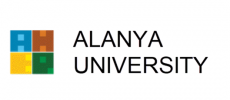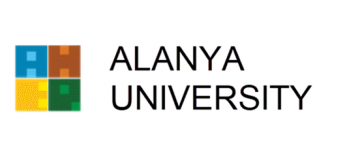Creative Commons (CC) is a non-profit organization that enables the sharing and reuse of creativity and knowledge through free legal tools. To this end, it offers a collection of open licenses. These licenses are free and open for anyone to use.
CC licenses are a means for the copyright owner to specify the terms of use of a work in a human and machine-readable way, allowing the user to learn the terms of use of the work without contacting the copyright owner.
CC licenses work with the concept of "some rights reserved" rather than "all rights reserved". There are six different license combinations based on four main conditions. In addition, PDM and CC0 provide two other tools for distinguishing works in the public domain.
For the use of works shared on the Internet with CC licenses by the copyright owner, it eliminates the step of obtaining permission from the author. Thus, it accelerates sharing. It unlocks the full potential of the Internet, encourages creativity and strengthens innovation. It is not an alternative to existing intellectual property laws, it works together.
CC licenses are machine-readable. See the CC REL page for standard definitions of licenses that can be read by software, search engines and other similar technological infrastructures. Using these definitions in metadata descriptions of websites and resources ensures the exchange of accurate and complete data and serves the principle of interoperability.
You can license the content of your website or blog by selecting CC licenses, thereby communicating the terms of use to the end user. To do so, please visit the Choose License page. Likewise, on YouTube, Flickr, etc., where you upload your work, you can select one of the CC licenses in the upload steps and indicate the terms of use in the same way with the help of CC license icons (e.g. CC-BY).
You can get basic information about CC in the short presentation given in this link. For other introductory documents, presentations, videos, please visit the Resources page. For good practices on how to cite CC-licensed sources, see this page.
The Frequently Asked Questions page, where we list questions we often receive, may answer some of your questions about CC licenses.
http://creativecommons.org.tr/
CC Promotional video: https://vimeo.com/151666798
CC Türkiye Contact: http://creativecommons.org.tr/iletisim/
Academic Journals and CC Usage
Creative Commons copyright licenses and tools create a balance within the traditional "all rights reserved" structure established by law. Our tools enable everyone from individual creators to large corporations and institutions to grant copyright permissions to their original works in a simple, standardized way.
MagazinePark and CC
- DergiPark, which provides services within the framework of a policy that supports and encourages Open Access, provides awareness to journals on the use of CC and provides technical infrastructure for implementation.
- It does not interfere in the internal functioning, publication policy and terms of use (use, dissemination, reuse) of journals. For this reason, the choice and application of CC license belongs to the journals themselves.
- DergiPark can identify journals that do not have a CC license and inform and guide them to use a license.
CC Licenses
All Creative Commons licenses have many important features in common. Each license helps copyright holders. Each Creative Commons license also allows licensors to take credit for their copyrighted works. Each Creative Commons license is valid worldwide and (because they are built on copyrights) is enforceable for the duration of the applicable copyright. On top of these common features, they also give licensors the option to offer additional permissions on how their works can be used.
CC licenses operate under the motto "some rights reserved" rather than "all rights reserved". There are six different license combinations based on four main conditions. Apart from these, PDM and CC0 offer two other tools for distinguishing works in the public domain. For the use of works shared on the internet with CC licenses by the copyright owner, it eliminates the step of obtaining additional permission from the author. Thus, it accelerates sharing. Unleashes the full potential of the Internet. It encourages creativity and strengthens innovation. It is not an alternative to existing intellectual property laws, it works together.
Licenses
https://creativecommons.org/licenses/?lang=tr

Attribution CC BY
The license grants users the right to distribute, mix, tweak, fine-tune, or work on your work, as long as they quote the original work. This is the most useful license offered. This license is recommended for as much use and dissemination of the work as possible.

Attribution-ShareAlike License CC BY-SA
This license gives the users of the work the right to mix, tweak and work on it, as long as they license their own work under the same license. This license is often compared to open access software licenses, which are independent of "copyleft". Wikipedia uses this license and it is recommended for works that make use of content like Wikipedia or similar.

Attribution-No Attribution CC BY-ND
This license permits others to use the work for any purpose, including commercially; however, it may not be shared with others in adapted form.

Attribution-NonCommercial CC BY-NC
This license allows others to create their own works for non-commercial purposes by mixing, tweaking, improving, or building on your work to create a different version. Although their new works must be non-commercial and must credit you, they do not have to license their resulting derivative works on the same terms.

Attribution-NonCommercial-ShareAlike License CC BY-NC-SA
This license allows others to use your work for non-commercial purposes by mixing, tweaking, or improving upon it in their own works, and the user must license the new product with the same license as the original work.

Attribution-NonCommercial-NoDerivatives CC BY-NC-ND
This license is the most restrictive of the 6 licenses. Your work can be downloaded or shared with attribution, but it cannot be modified or used commercially.
There is also a "all rights reserved" tool in the public domain.The CC0 tool allows the licensor to waive all rights and declare a work in the public domain and the Public Domain Marker tool allows any web user to "mark" a work as Public Domain.
CC License Selection Tool
CC licenses, so that you can communicate the terms of use to the end user.
https://creativecommons.org/choose/?lang=tr







